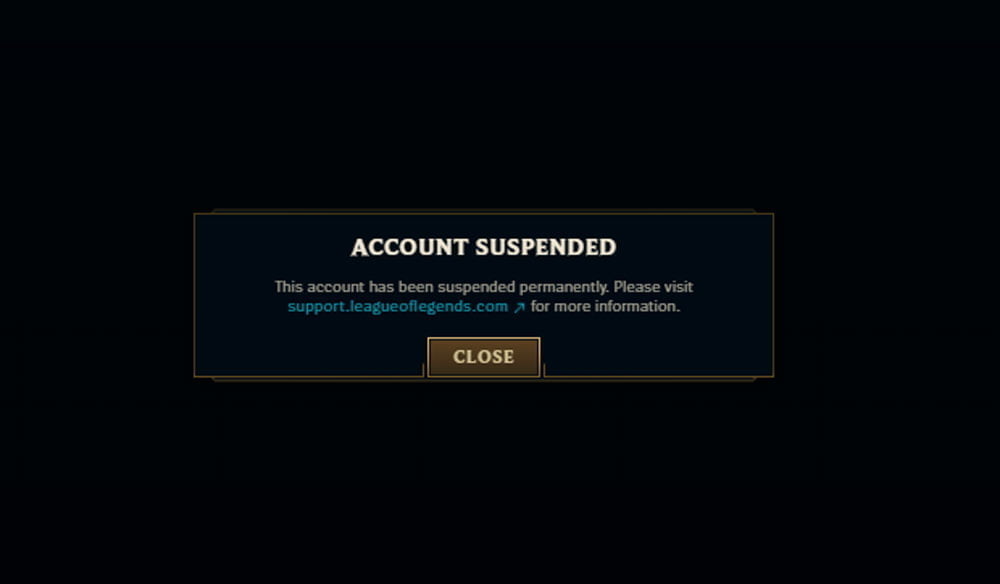Riot’s Stance on Elo Boosting in League of Legends
Elo boosting may result in bans due to its violation of Riot’s Terms of Service. Although Riot has not explicitly outlined guidelines on its detection, there are certain patterns and actions to avoid in order to prevent being banned for boosting.
It’s important to note that the most common form of boosting involves sharing an account with another player, which directly violates Riot’s Terms of Service and is strongly discouraged.
Also read: How to fix mouse jitters in LoL
What is Elo Boosting?
Elo boosting is a method of improving a player’s rank on the ladder by allowing higher-skilled players to play on their account.
Many players offer boosting services on various websites in exchange for money. This option is often chosen by players who struggle to climb the ranked ladder on their own.
Why is it an Offence?
Elo boosting involves either allowing someone to play on your account or providing them with your account details for them to play on their own device.
Since Riot’s matchmaking system matches players of similar rank and skill, a higher-ranked player playing from a lower-ranked account creates an unfair disadvantage for their opponents. This disrupts the balance of the game.
For example, imagine you’re in your final Promotion Series game into Silver and suddenly face a Bronze enemy midlaner who goes 10/0 in 5 minutes, completely dominating your team. It can be frustrating, right?
How Does Riot Catch Boosters?

Riot hasn’t explicitly revealed its methods for catching boosters, but player experiences suggest that Riot combines several factors to determine whether an account is being boosted or not.
If you choose to get boosted, it’s crucial to avoid certain mistakes that can trigger Riot’s banwaves.
Massive Spike in K/DA:
The Kills/Deaths/Assists (K/DA) ratio is an important indicator of a player’s performance. If Riot’s system detects a sudden and consistent change in a player’s K/DA in ranked games, it may flag the account for suspicious activity.
A high K/DA during a long winning streak raises suspicions that the player is dominating every game. Unless there has been a significant improvement in skill, this can lead to a serious investigation by Riot.
Change in IP Address:
When you log into League of Legends, your internet IP address is sent to Riot’s servers, providing information about your computer and location. If there is a sudden shift in IP location when someone else logs into your account, Riot’s system can flag it as suspicious.
If the booster is in a different geographic location than you, this raises a red flag and indicates account sharing, likely resulting in Riot taking action.
Change in Champion Pool:
If an account primarily plays as a toplaner but suddenly starts playing as an attack damage carry (ADC) in the botlane, carrying every game, it suggests that a booster is using the account.
A significant change in champion preferences in ranked matches, combined with exceptional performances on champions the player hasn’t played before, can raise suspicion and lead to the account being marked as suspicious.
Change in Summoner Spells:
Surprisingly, changes in summoner spells have led to the detection of elo boosting. The placement of summoner spells on the D or F keys can indicate who is playing on the account.
For example, if a player consistently had Flash on the D key and suddenly switches it to the F key, this change can confirm someone else playing on their account, leading to a ban by Riot.
How to Get Past These Checks?
None of these factors alone are solid grounds for a ban, as players can experience them legitimately during a ranked season. However, Riot usually bans accounts that exhibit multiple red flags or have been reported by the enemy team. Sensible behavior from both the player and the booster can help avoid bans.
Avoid winning streaks of 10 or 15 matches in a row, as it raises suspicion. If the booster is in a different location, use a VPN to assign them an IP address from your region. Finally, use similar champions and summoner spells when either of you is playing on the account.
Final Verdict:
This article does not endorse elo boosting but aims to raise awareness about its risks. If you do choose to pursue elo boosting, ensure you avoid the mistakes mentioned above to protect your account from being banned.
Feel free to share your thoughts in the comments, whether you support this practice or believe Riot should take stricter action against boosters.
Check out this article that explores why queue times are often long in League of Legends.
